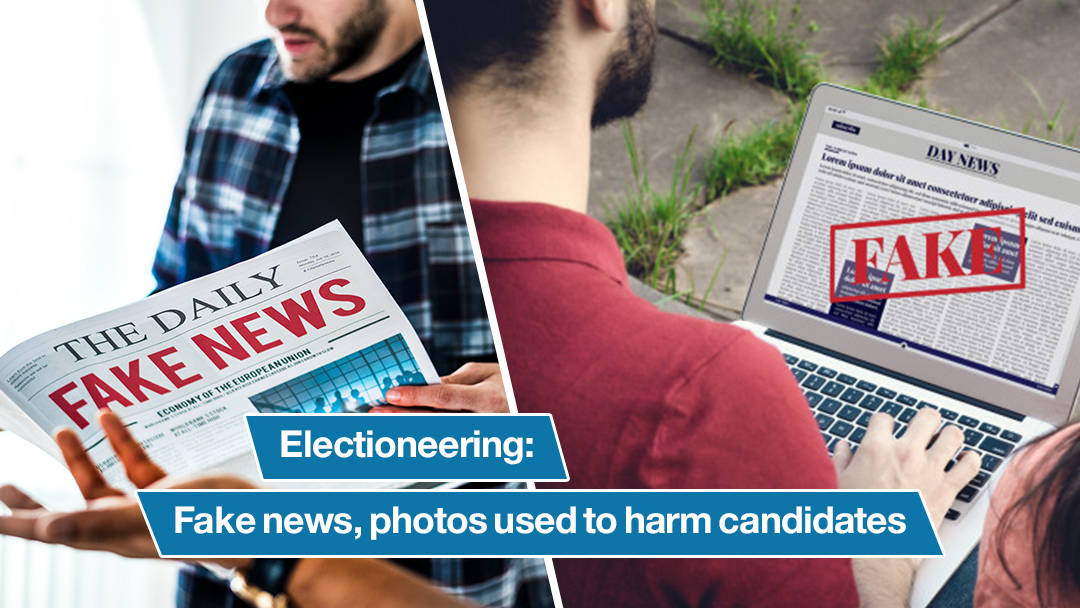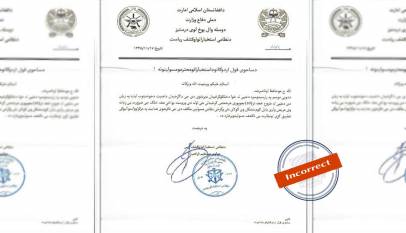Electioneering: Fake news, photos used to harm candidates
KABUL (Pajhwok): Experts suggest fake news and photographs of presidential candidates from unknown sources should be prevented because such news hurt people’s trust and confidence.
The upcoming presidential elections are scheduled for September 28.
Eighteen individuals first nominated themselves for the election, but later three joined other teams while presidential candidate Mohammad Hanif Atmar has called off his campaign and the remaining candidates are contesting for the presidency.
During the election campaign that is going to end tonight, fake news and photographs were circulated and some candidates leveled baseless accusations against their rivals.
Examples:
Last month, a news circulated in social media, claiming presidential candidate Gulbuddin Hikmatyar had been injured and his son killed, but Pajhwok published authentic story and found the news fake.
Similarly some Facebook users and a news network had claimed that former president Hamid Karzai declared his support for presidential candidate Abdullah, but Pajhwok investigated the news and found that there was not truth in the story.
Experts term baseless accusations against presidential candidates in social media and Facebook as rumors and ask people not to believe them.
Another report of Pajhwok Afghan News headlined “Forged images bring angst to electioneering” shows some people release manipulated images and false reports against candidates to defame them and impede their success in the polls.
Political experts have called for stopping the release of photo shopped images on social media (Facebook and Twitter).
How fake news disseminates and why they are disseminated:
Mohammad Wasim Wesal, a teacher at Mustaqbal University, told Pajhwok Afghan News that fake news were those which lacked authentic source and generally had a campaign tendency.
He said fake news were inappropriate way to achieve goals and could be disseminated and published in form of text, video, audio and photographs during campaign in an attempt to defame disrespect and humiliate their rivals.
Independent journalist Aziz Khan said fake news and unfair photographs were published against an individual or group with the solo aim to harm them.
He said fake news were politically motivated and mostly disseminated in social media such as Facebook, twitter and other handlers.
Khan said individuals with unreal names on social media promoted fake news and photographs.
Impact of fake news and images
According to Aziz Khan, baseless and false news and images could harm individuals portrayed in these materials.
He added fake news and images harmed people because these news were more interesting, circulated promptly among people compared to real and authentic news thus it has more impact on people and individuals about whom such news and images are circulated.
How to prevent fake news, photographs:
However, Wesal said it was necessary that individual should offer clarification about baseless news about allegations against them so that people did not believe in fake news.
He said baseless and fake news hurt public trust and if there was no clarification, it will have a negative impact on the victims vote bank.
Wesal said: “The prevention of fake news is difficult because an individual about which the news is published he/she is not aware that fake and baseless story is published about them.”
Hotak also believed that prevention of fake news is difficult because such items are disseminated from unknown and unidentified social media handlers.
“Clarification of fake news is difficult and need a lot of time. The way fake and baseless news spread quickly, its rejection and clarification is time consuming,” he said.
Social media control is difficult:
Deputy spokesman of the Independent Electoral Complaint Commission (IECC) regarding fake news and images said: “One of the main challenge in our official work is the existence of fake social media accounts with unknown identity. When the identity is not clear it will be difficult to chase,” he said.
He, however, said if someone identifies individual fake news dissemination a complaint could be registered with the IECC and it can been investigated under the category of fraud.
He said 81 complaints have been registered out of which eight have been addressed.
Some individuals had been issued notices while some other violators fined.
Sher Shah Nawabi, spokesman for the Ministry of Communication and Information Technology (MoCIT) said a separate department called Syber Security was established in the ministry two years back which is active and has referred tens of criminal to the Attorney General in cooperation with security institutions.
He said if an individual does not register a complaint, the Syber Security Department could not investigate the problem.
Ahmad Sohaib Hasrat
Hits: 8148
Letter regarding ban on roaming during night is fake
KABUL (Pajhwok): The Ministry of Defence (MoD) and an expert have rejected the letter rega…



